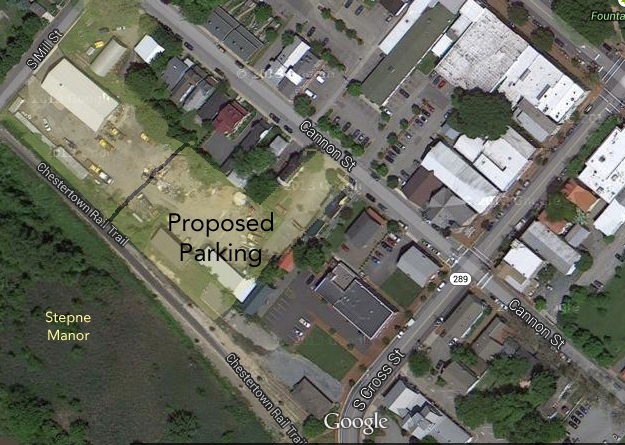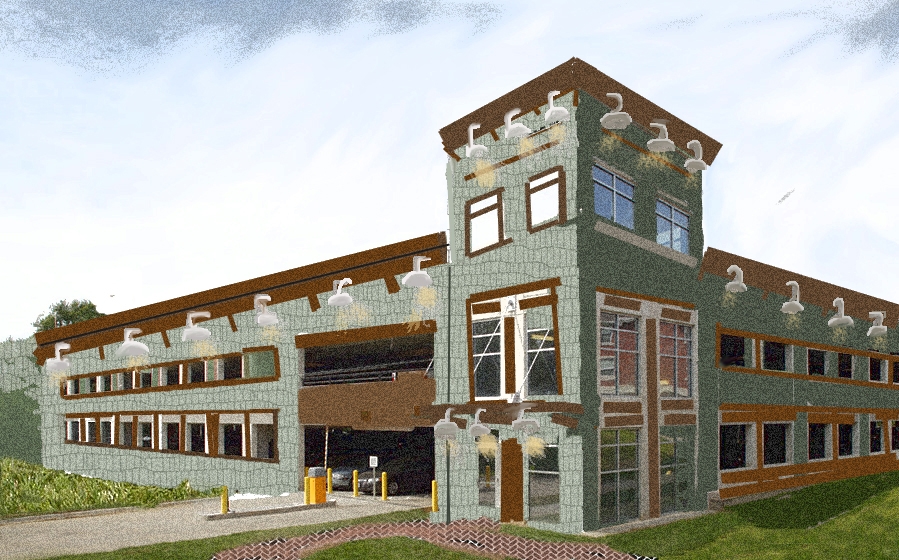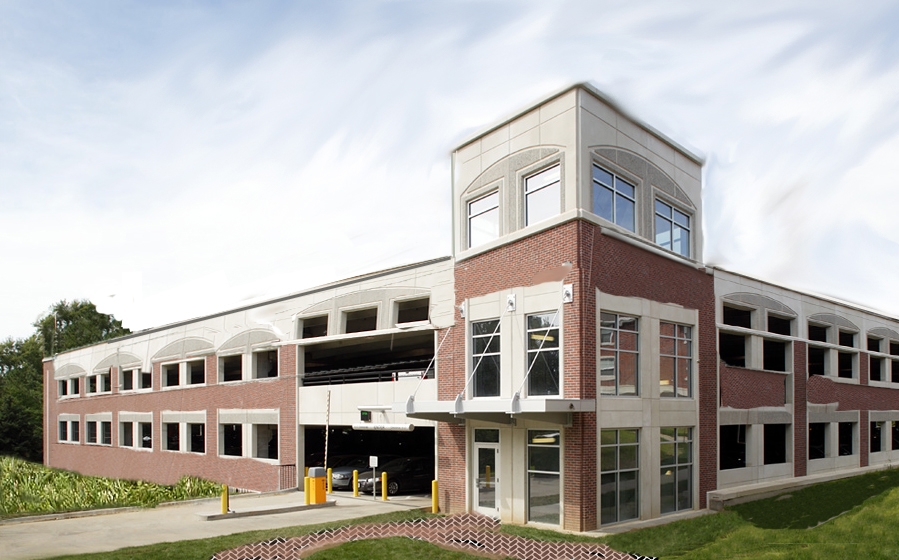A public hearing Monday to consider the recommendations of the defunct Waterfront Task Force heard the familiar concerns over how to develop the town-owned marina, choreograph the Saturday farmers’ market, grow the tourism industry, and settle the nagging issue of parking.
Many spoke in common about Chestertown’s assets as a tourist destination and a place to live and work. And there was agreement of the need for businesses, residents, and the town government to embrace change and chart a path for economic development, stuff we’ve all heard before.
The idea of freeing the collective conscious to embrace change has been the inspiration at many public hearings–but collective anxiety and entrenched resistance has historically dashed any hope of revitalization that is free of antiquated regulations.
Washington College President Mitchell B. Reiss was the first to speak on the issue of change and expressed hope that the recommendations of the task force, which was fielded by representatives from the town and college, would not become an archived relic “collecting dust” at Town Hall.
“Will the idea of change paralyze us,” Reiss asked. “The question before the town council and all of us now is what happens after the task force’s report. Will it be filed away and forgotten, or will the town council and all of us seize the opportunity and work together with the major stakeholders and move forward.”
Kevin Shertz, a local architect and future owner of Chester River Brewing Company, spoke of the town’s culture of ‘no’ mentioned in the task force’s report and said he too had fallen victim to the town’s entrenched resistance to change.
“I personally…have seen the culture of ‘no’ that we have in this town,” Shertz said, referring to the closing months of 2012 when he was denied the zoning he needed to bring his brewery to the Chestertown Business Park.
Shertz said that stymieing an entrepreneur’s desire to locate in Chestertown gave other municipalities the chance to lasso those entrepreneurs to serve their own economic development plans.
“Entrepreneurs in general look for opportunities where they can,” he said. “People out there are more than happy to eat our lunch for us if we are not willing to step up and get out of our comfort zone as a community.”
Jay Yerkes, owner of Yerkes Construction, went back to the idea of fixing the parking issue—lamenting that he knew current business owners and potential startups that had an aversion to locating downtown because of the parking problem.
The idea of resetting the local mindset inspired much applause throughout the hearing, until a collective gasp was muttered when Holly Geddes, a former Main Street President and mayoral candidate, suggested building a two-level parking lot on the lower third of the town’s utility yard, adjacent to Artist’s Row.
Geddes told the Spy on Wednesday that the location could accomodate at least 300 parking spaces. Centrally located off the 300 block of Cannon Street, cars would enter the town owned right-of-way along Artist’s Row. Geddes said the idea has received support from the Artist’s Row property owner.
“The location is in the heart of the downtown area, only two blocks from the water and one block from High Street and the Farmer’s Market, and it’s right next to Rails-to-Trails,” Geddes said. “It would provide great relief during large events like Downrigging and Tea Party.”
She said it could be built below the roof lines of the surrounding homes and commercial buildings and incorporate the design of other properties.
“If the design reflects the facade of either the old train station or the proposed Sultanna building on Cross Street, it could be an asset to the beauty of the town.”
Not one speaker at Monday’s hearing mentioned the need to do nothing about the town’s pressing economic condition, so all we can do is hope that the frightened reaction to a parking lot was simply a residual reflex that will be cured over time. Otherwise, Chestertown could be frozen in time for the forseeable future.





Keith Thompson says
Editor,
As a non-resident who is employed in Chestertown and hopes to see improvements to the town’s economy, I came away with a more positive impression from Monday night’s hearing. What I didn’t hear (my comments included) was one specific thing that the town needs to do to move ahead (I think coming to grips with the marina is the most important job for the town right now), but what I heard were lots of little ideas. I like the notion of lots of little ideas because all of these little ideas, if successful, will add to the town’s total economic health. It’s also possible for a little idea to take off and become a big idea (something like the Sultana can fit that description). To riff off of Kevin Shertz’s “culture of no” comments; the one thing I did not hear Monday night was a big defense of the status quo, nor was any talk of economic development met with the inevitable cry of “we don’t want to become like Middletown”.
My gut feeling (buoyed by the recent success of High Street businesses like JR’s/Lemon Leaf, Evergrain, Music Life, Houck’s, Mimi’s Closet, etc. and the announcement of upcoming improvements at Kent Plaza) is that the town is undergoing a culture change, especially an easing of “the culture of no”. I’m choosing to be more optimistic right now.
John Mann says
Editor,
Maybe I’m jaded because I grew up in Baltimore (where parking is much more difficult to come by), but I’ve never had much trouble finding free parking in Chestertown. I’m not necessarily opposed to the idea of a parking garage, but I’d be curious to see how that investment has worked out for Centreville before investing in one. I’ve never heard the lack of parking cited as a reason why someone didn’t want to come downtown… unless you’re talking about the times when the Fish Whistle’s parking lot is under water. In that case, I tend to agree with Keith, the marina should be priority number 1.
Although, if he’s asking the question my answer is, “No, I don’t want to become like Middletown.”
Kevin Shertz says
Editor,
To be fair, if you take the perspective of a weekend visitor who’s never been here before, the municipal parking lots are nearly impossible to find due to a lack of signage.
We moved here from one of the most parking-challenged neighborhoods in DC (Adams-Morgan) and share your sense of “it’s no big deal,” but if local downtown businesses are saying it’s a big deal, then perception becomes reality.
And, if you were doing one of the 5K/10K races from Wilmer Park — and KRM was not so benevolent in allowing the use of their property for that purpose — it would be a different story as to how visitors felt regardless of signage, etc. We walk our dog Harley through Wilmer Park almost every morning and are well-aware as to how ‘used’ that area is for park activities.
Keith Thompson says
Editor,
To answer the writer…no I’m not suggesting that Chestertown become like Middletown. In fact, I don’t think it’s possible because Middletown has the opposite set of issues that Chestertown has. Middletown was faced with a huge influx of people moving around the town and the town was forced to annex and grow in order not to get their infrastructure swamped. Chestertown does not have an influx of people moving to the town, but it does have two economic resources that Middletown doesn’t have…a waterfront and a college.
Bil Anderson says
Editor,
Having lived many years of my life in or near Chestertown, I can assure you all that the town does indeed have an entrenched culture of “NO”, “Not Now”, “Maybe someday”. The businesses downtown all want the same thing; their stores filled with customers who buy their products and had no problem parking at the front door — provided that some other entity makes all of this possible. A certain amount of that culture is desirable and prudent. For example, the town’s acquisition of the marina, in the absence of an actual workable plan for its development and maintenance was a mistake. That’s why the negative culture is not necessarily a negative thing.
The town should be required by the residents and business owners to show a plan and the underlying assumptions which support the plan for constituent review.The mayor, town council, planning committee do not necessarily have the best ideas on every occasion and it would be well to involve the community from the beginning.
Andrew Covert says
Editor,
In June of 1997 I relocated to Chestertown with my partner from San Diego and opened PLAY IT AGAIN SAM. We were instantly supported by the Chestertown community. I had to quickly learn the Chestertown way and was happy to do so, When in Rome.
At a merchant meeting one day, I made the observation and announced to the other shop owners that we were spending $40,000 a year paying for a tourism / marketing director to bring people into our town, but when the tourist arrived the streets rolled up at 5pm on Friday night. Saturdays were wonderful but on Sunday morning the town was a merchant ghost town. I expressed that we are spending all this money to bring theses people here and offered them nothing in the way of food or shopping of there Sundays.
I suggested that we keep our stores open Sundays for the tourists and our community. This idea was not welcomed by any of my colleagues. I stated that I was going to keep Play It Again Sam open on Sundays. People coming into town for there morning paper from Miss Anna ( Scottie’s Shoe store) would have another location to visit.
I took about 30 days for word to spread but Sundays became one of busiest days. We loved allowing people to relax in our store and enjoy there newspaper and other patrons. But every Sunday I would get asked the question “What time do the stores open on Sundays?” They don’t, I had to reply. I am happy to report that within about 6 months or so, more and more shop owners started having Sunday hours.
Chestertown Maryland is a magical place, my nick name for it is Brigadoon because like in the movie it just appears in the horizon ( every 100 years) but once you meet and experience the people in the town, It’s magical. I went away for about 10 days one time, upon my return I asked an old time resident what’s happened in the last 10 days? He reply ” The spot light in town turned from red to green”.
There is so much to see to just allow time to stand still and let things to stay just as they are, but as in life, we must enjoy what is right now because tommorow will be another day and it will be different. I sold Play it Again Sam, but it is still apart of the community, my partner and I are no longer together, I relocated back to San Diego. Scottie’s shoe store is no longer there. Andy’s is not there but JR’s is. Chestertown has and is changing, it’s just trying really really hard not to.
Elaine Bowman says
Editor,
You have to be kidding! This is like building the castle before you have the kingdom! In case anyone has not noticed, the streets were empty most of the year with the exception of the few merchants who refuse to park anywhere other than in front of their business. Free parking at Christmas only allows employees to park for free on the street. Giving the false impression that the town is busy.
I am quite adamant that a parking garage is not what is needed as a first step to recovery.
Elaine Bowman @ Village House
Maurit "Marty" Stetson says
Editor,
How would you propose to pay for this “Castle of a parking garage”? On one hand, Ms. Geddes proposes doing away with the meters but then wishes to build a parking garage. Does she wish it to be a paying parking garage or does she wish the tax paying residents to pay for it? A small lot some place will help but I am not sure doing away with the meters is the answer.
I do not know of anyone who does not come to town because they do not have a nickle to put into a meter. If we do develop our tourist trade to stay all day in town or even four or five hours do we want them leaving their cars in front of the business. A business that lacks customers in our town needs to look some place other than the parking meters for their lack of attracting someone to their stores. We need to strike a balance between the need of parking for the residents, the business and the tourist, doing away with the meters is not the answer.
Keith Thompson says
Editor,
How would you pay for a parking garage? It should come out of an increase in the collection of business taxes due to an increase in business that would necessitate a parking garage.
I’ll ask…what is the purpose of the parking meter? Is it to regulate parking or is it to collect revenue. If it’s to regulate parking, you have to have enough issues with parking to regulate it and if there is a premium on parking then meters are necessary. If the purpose is revenue collection, then meters are a nuisance and a public relations problem. My experience is that at most times, parking is not at a premium downtown making the meters more of a nuisance than as a necessity. If you want to attract more business downtown, parking meters do not help.
I don’t think there is enough activity right now to warrant a parking garage, but if business and activity increases enough downtown to make parking more of an issue, this will be a nice problem to have.
Marty Stetson says
Editor,
Just to add to my previous comment, to those who think the parking meters and their enforcement is a money maker for the town – they are not. The parking meters and their enforcement cost the town each year. That is something I have suggest that we fix, but have not gotten the needed support.
Kevin Shertz says
Editor,
While it’s entirely possible that no new parking in downtown Chestertown is required — merely better signage to what already exists — I’d prefer we make that decision based on a survey of existing parking versus potential needs instead of relying solely on gut emotion for a conclusion.
And it should start by talking to the merchants that are already in Town and then focus outward to potential merchants.
Oh, and any merchant who chooses to park directly in front of their store for their own convenience deserves to go out of business.
matthew weir says
Editor,
I believe all options should be considered in our quest to make Chestertown a more attractive and economically viable community. The idea of a parking lot, a rail to trail, a dog park or any other capital investment should simply be determined on whether it will achieve a desired outcome. Why would Chestertown want a parking lot? I would assume it would be to make it easier for tourists to come, for shoppers to spend their money and for residents to park. The town has certainly invested significant sums into the rails to trails and the numerous parks, like the dog park, so clearly the members of the Town Council are happy to do cost benefit analysis of expenditures. The most important consideration, at the moment, is not to discourage ideas but, on the contrary, to make everyone feel empowered to float an idea!
With regard to paying parking meters, I can only tell you that, as a resident of Washington, DC, I almost never have loose change available. In DC all parking meters wither take credit cards or one can use Apps (like Parknow!) to pay for parking. Add E Z Pass to the equation and there is almost no need to have loose change available anymore. So, using nickels to feed the meter is, indeed, an inconvenience.
Gail Regester says
Editor,
Has Ms. Geddes asked the residents of that block how they feel about a large edifice behind their homes? The value of their property could drop drastically. The 300 block of Cannon has figured prominently in our town’s history. Unfortunately, in suggesting ways to help the tourist trade in town, many forget the residents affected who have invested money and labor in their homes and deserve much more consideration in future plans.